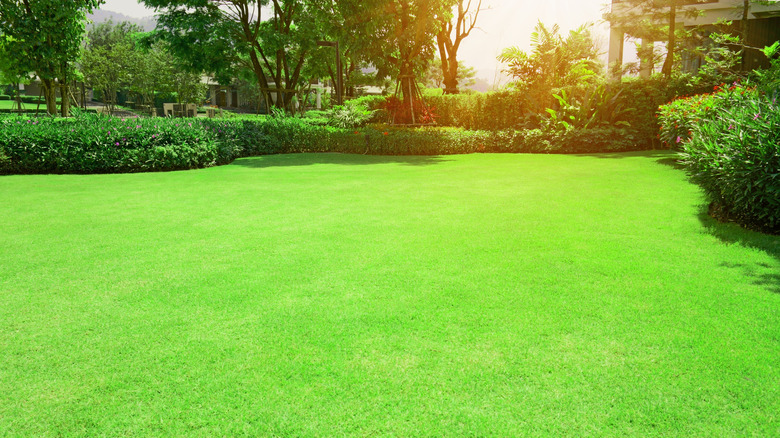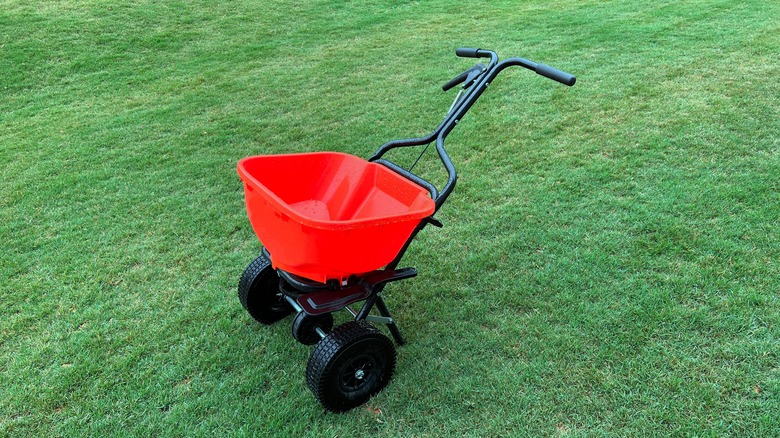Hybrid Bermuda Grass: Our Top Tips For Growing A Lush, Dark Green Lawn
If you've ever found yourself gazing longingly at a fairway or wondering how groundskeepers get football fields to look so green, then the answer partly depends on what kind of grass is growing. Bermuda grass is a popular choice for sports fields, golf courses, tennis courts, and homeowners who want to create a lush lawn in no time. While common Bermuda grass (Cynodon dactylon) is best left to grow in a pasture as feed for livestock rather than your backyard, a hybrid Bermuda grass (Cynodon dactylon x Cynodon transvaalensis, for example) is a favorite for creating that super lush, putting green-style lawn.
The majority of hybrid Bermuda grasses have been bred to hold up to foot traffic especially well and have more disease resistance than their common cousin. There are a handful of hybrid varieties that have been developed over the years, which have been created to produce a range of favorable qualities like texture, color retention, and low water needs. Hybrid Bermuda grass performs best under full sun and is a prime candidate for getting a sharply edged bed in your lawn to prevent it from dominating flowers, as Bermuda grass is considered to be an invasive species in Utah, Georgia, West Virginia, and Maryland. And while a select few hybrids are offered in seed form, hybrid Bermuda grasses are typically sterile, so most won't produce seed. Instead, sod must be used to create that lush turf look.
Selecting the right hybrid variety for your lawn
Selecting the right variety for your lawn will depend a lot on where you live. Bermuda grass is ideally suited for the southern parts of the United States in USDA Hardiness Zones 7 to 10 where temperatures remain mild. There are a number of hybrid strains available, which are developed when two or more varieties are crossed to create favorable traits (like spreading habit, color, cold tolerance, and more.) Tifgreen is a hybrid cross (C. dactylon x C. transvaalensis) that was bred for its density. Though the majority of Bermuda grass varieties will go dormant in northern locations where temperatures regularly drop below freezing, there are a handful of hardy options.
For those in Hardiness Zones 5 and 6, a hybrid variety like Mohawk is suited for chillier climes and is available in seed form. Yukon Bermuda grass seed is another exceptionally cold-tolerant variety and was created by the Oklahoma State University Turfgrass Research Team alongside the United States Golf Association. (It's worth noting that when grass seed is developed privately, the identity of the parental strains is not typically revealed.) Growing a healthy lawn of Bermuda grass comes down to three simple things: Deep watering once a week (preferably at night when you won't lose moisture to evaporation), a healthy dose of nitrogen fertilizer every four weeks over the summer, and regular mowing to maintain a grass blade length that stays under 2 inches.

